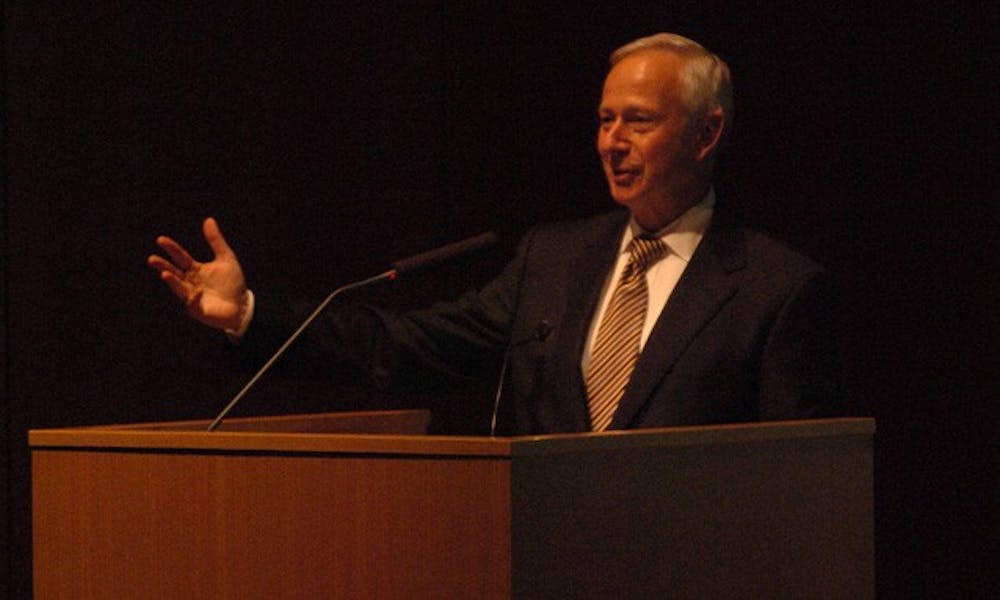President Richard Brodhead offered Duke’s professors a lesson in the history and finances of universities in his annual address to the faculty Wednesday.
Universities, he said, are among the most durable institutions of modern times. But the modern university was created, in part, by the post-World War II boom.
“If modern universities are in part products of a historically-contingent prosperity, what will it mean if that growth proves unsustainable or, at best, uncertain?” Brodhead asked during his speech Wednesday in the Nasher Museum of Art auditorium.
Typically the president addresses the faculty in a Fall Academic Council meeting, but this year the format was changed to underscore the independence of the meeting from Academic Council and to encourage more faculty to attend. Approximately 75 professors attended the 4 p.m. address.
Brodhead told faculty that Duke has seen its share of prosperity and uncertainty over the last 80 years. He noted that the endowment and donations to the University have both grown rapidly during the past 30 years, enabling Duke’s expansion and rise in prestige.
Although donations dropped 22 percent and the endowment fell 27.5 percent from an all-time high between 2008 to 2009, Brodhead said Duke remains ambitious.
“The school that fares best in hard times will be the one that strikes the best balance between supporting established fields and retaining the means for innovation,” he said.
As the University works to cut a $125 million budget shortfall, Brodhead said students, faculty and academic programs remain Duke’s highest priorities. He emphasized Duke’s commitment to undergraduate financial aid and said the University will continue to hire professors despite the downturn. Duke will also continue to introduce new academic programs, particularly those that correspond to the strategic plan’s goals of interdisciplinarity, internationalization and engagement with contemporary challenges.
Brodhead cited the Institute for Brain Sciences, Duke’s Kunshan campus in China and DukeEngage as examples of new initiatives.
Some of the programs, particularly the three new masters programs Duke has created in the past 10 months, have another benefit, said Academic Council Chair Craig Henriquez. They generate extra money for the University.
“There appears to be a growing demand for such masters degree programs... to prepare students for a competitive job market,” said Henriquez, professor of computer science and co-director of the Center for Neuroengineering.
But these new programs also have costs. He noted that having additional masters students on campus increases the burden on professors and student services. Henriquez said Academic Council will soon create a masters degree advisory council, to assess the impact of the new programs on Duke.
The masters programs constitute just one of the steps Duke has taken to balance its budget.
“Through a careful university-wide exercise, we are walking our way back to a sustainable budget, and we are well along with this task,” Brodhead said.
To cut spending, the University has already given employees incentives to retire, left vacant positions unfilled and offered workers fewer opportunities to work overtime. Additionally, faculty and staff making more than $50,000 did not receive raises last year, which kept an additional $18 million in the University’s coffers, Brodhead said.
Brodhead noted that the cuts made to date “if luck holds and prudence continues, [have] averted the need for sizeable system-wide layoffs.”
But he acknowledged that it is impossible to know how University investments will perform going forward, and more broadly, whether private individuals and the government will continue supporting universities in the future.
“In truth, we do not yet know what this time will prove to mean for the history of knowledge and of opportunity-creation,” Brodhead said.
Get The Chronicle straight to your inbox
Signup for our weekly newsletter. Cancel at any time.

